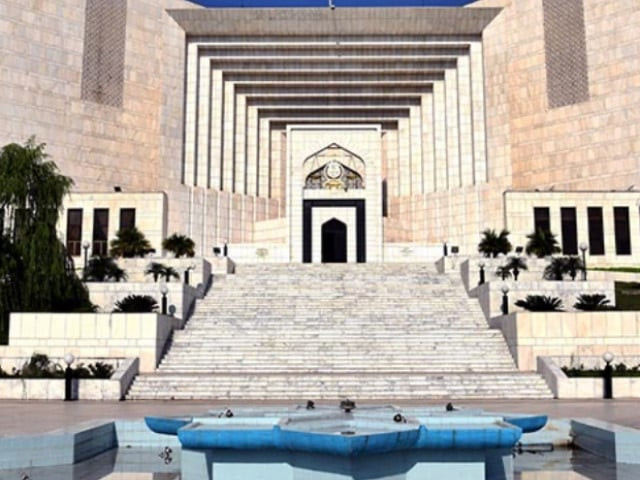JCP nominates two ad hoc judges for SC
Sardar Tariq Masood, Mazhar Alam Miankhel to serve for one year in apex court

Despite severe criticism from a segment of lawyers and the PTI, the Judicial Commission of Pakistan (JCP) has approved the nomination of two retired Supreme Court judges for appointment as ad hoc judges of the apex court for one year.
A JCP meeting was held on Friday to consider the nominations of both retired judges, with Chief Justice of Pakistan Qazi Faez Isa presiding.
By a majority vote of 8 to 1, the JCP approved the nomination of Justice (retired) Sardar Tariq Masood as an ad hoc judge of the apex court. The nomination of Justice (retired) Mazhar Alam Miankhel was approved by a majority of 6 to 3.
It has been reported that before the JCP meeting, Justice (retired) Miankhel had expressed his inability to serve as an ad hoc judge through a WhatsApp message, citing a social media campaign against his appointment. He also informed the media of his reluctance to take up the position.
Sources revealed to The Express Tribune that a majority of JCP members believed Justice (retired) Miankhel should be reconsulted to obtain his consent.
However, three JCP membersJustice Syed Mansoor Ali Shah, Justice Munib Akhtar, and Justice Yahyadisagreed with the majority decision. They felt that if Miankhel was facing social media pressure, he might not be suitable for the role.
Later, government sources confirmed that Justice (retired) Mazhar Alam Miankhel had consented to serve as an SC ad hoc judge following the approval of his nomination by the majority of JCP members.
Advocate Abdul Moiz Jaferii criticized the nomination, stating that it is extraordinary for a judge to admit difficulty in handling judicial pressure yet still be nominated to serve on the bench. It is difficult to understand how such a judge would manage the duties required of him, he added.
Ad hoc judges tenure
It is reported that one JCP member suggested a three-month tenure for the ad hoc judges, as the next chief justice might withdraw their notification later. However, CJP Isa asked Senior Puisne Judge Syed Mansoor Ali Shah to decide on the tenure. Justice Shah proposed a one-year term, while CJP Isa had initially suggested a three-year period.
Entitlement to Salary and Pension
The JCP members discussed whether ad hoc judges are entitled to both salary and pension. Justice Shah argued that they should not claim a salary as they are already receiving a pension.
However, law minister Azam Nazeer Tarar and Attorney General for Pakistan Mansoor Awan disagreed, stating that the retired judges would receive a pension for their past service and a salary for their new role. They acknowledged that the Constitution does not address this issue clearly.
It is anticipated that the government may issue a presidential order to provide both pension and salary to the ad hoc judges. Justice Yahya Afridi said it is up to the government to decide on the perks and privileges of ad hoc judges.
If the ad hoc judges receive both salary and pension, they could earn approximately Rs2.6 million per month from the public exchequer, potentially more than any of the superior court judges. Senior lawyers believe there is a possibility that salary or pension might be reconsidered during Justice Shahs tenure.
Legal questions raised by Justice Munib Akhtar
During the meeting, Justice Munib Akhtar raised legal objections to the nomination of the two ad hoc judges. He argued that ad hoc judges would effectively hold the status of permanent judges.
According to Article 182 of the Constitution, ad hoc judges are meant to attend court sessions, but about 20 ad hoc judges have been appointed since 1973.
AGP Mansoor Awan clarified that under the Constitution, ad hoc judges are appointed by the CJP in consultation with other JCP members, but this appointment does not fall under Article 175A of the Constitution. He said consultation with members is not binding on the CJP.
It has also been reported that some JCP members strongly objected to letters written by National Assembly Opposition Leader Omer Ayub and Senate Opposition Leader Shibli Faraz, which criticized the ad hoc appointments. Members of the Pakistan Bar Council (PBC) from the Professional Group have decided to challenge the appointment of the two ad hoc judges.



















COMMENTS
Comments are moderated and generally will be posted if they are on-topic and not abusive.
For more information, please see our Comments FAQ